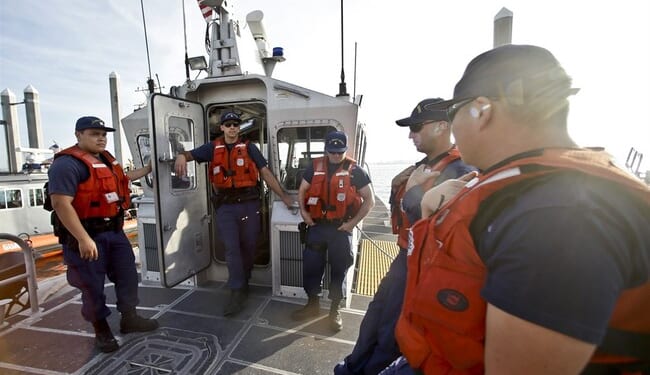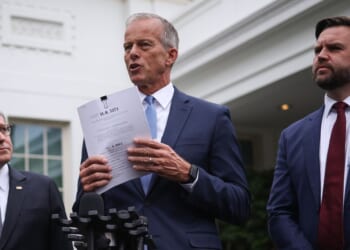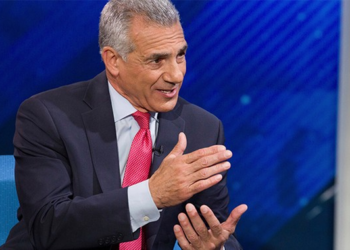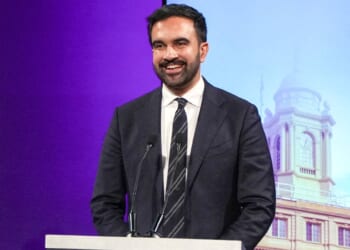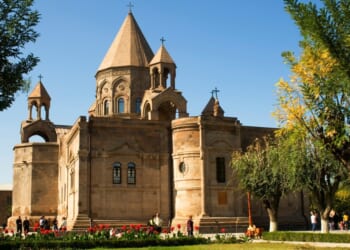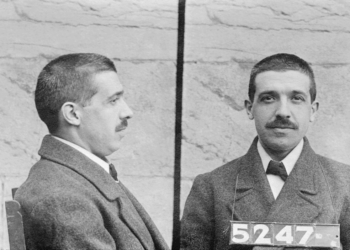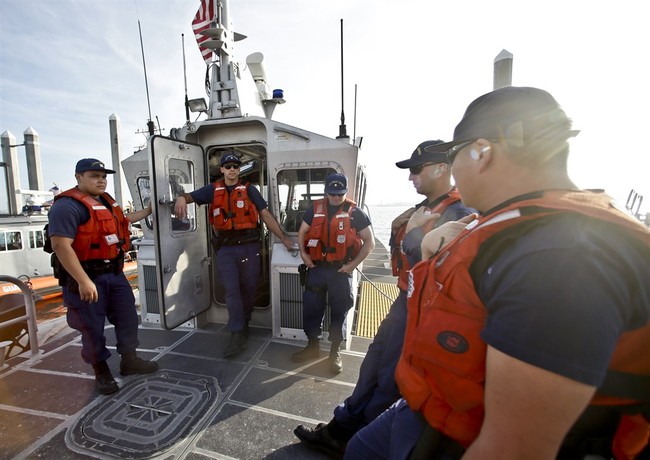
There has been a lot of talk about whether the narco-boats the Donald Trump administration is striking in the Caribbean Sea are, in fact, narco-boats. Most of that talk has come from Gustavo Petro, Nicolás Maduro, and their buddies on the left in the United States, like certain members of Congress and the MSM. The way they tell it, these are just humble fisherman sitting miles off shore in international waters, using these sophisticated vessels to catch a meal or earn a living.
On Friday, the Associated Press attempted to join this chorus that is aimed at making Trump look like a mean old bully by publishing an article entitled “Trump has accused boat crews of being narco-terrorists. The truth, AP found, is more nuanced.”
In the article, the AP claims it figured out “the identities of four of the men – and pieced together details about at least five others – who were slain, providing the first detailed account of those who died in the strikes.”
It implies that these guys weren’t necessarily narco-criminals before admitting about six paragraphs down that they were all indeed narco-criminals: “In dozens of interviews in villages on Venezuela’s breathtaking northeastern coast, from which some of the boats departed, residents and relatives said the dead men had indeed been running drugs but were not narco-terrorists or leaders of a cartel or gang.”
I could have stopped reading right there.
First, no one ever accused these guys of being cartel or gang leaders. And, if you want to get technical about it, they’re not narco-terrorists in the pure sense of that term, sure, but they work for narco-terrorist organizations like Maduro’s Cartel de los Soles. If I were a prostitute, and the police tried to arrest me, they wouldn’t let me off the hook just because I told them I was merely working for some pimp.
They also wouldn’t let me off the hook because it was only my “first or second time” or because I was making low wages, but the AP tries that angle anyway. The article continues:
Most of the nine men were crewing such craft for the first or second time, making at least $500 per trip, residents and relatives said. They were laborers, a fisherman, a motorcycle taxi driver. Two were low-level career criminals. One was a well-known local crime boss who contracted out his smuggling services to traffickers.
The men lived on the Paria Peninsula, in mostly unpainted cinderblock homes that can go weeks without water service and regularly lose power for several hours a day. They awoke to panoramic views of a national park’s tropical forests, the Gulf of Paria’s shallows and the Caribbean’s sparkling sapphire waters. When the time came for their drug runs, they boarded open-hulled fishing skiffs that relied on powerful outboard motors to haul their drugs to nearby Trinidad and other islands.
The AP then goes on to say it talked to anonymous friends and relatives of these drug runners who were afraid of “reprisals from drug smugglers, the Venezuelan government, or the Trump administration.”
After putting up a graphic to display how many men have been killed via the military strikes — I must have missed the graphic on how many people have died due to drug smuggling and other cartel activity — the AP then goes on to eulogize some of the men. Here’s a sample:
Luis ‘Che’ Martínez was killed in the first strike. A burly 60-year-old, Martínez was a longtime local crime boss, and he made most of his living smuggling drugs and people across borders, according to several people who knew him.
He had been jailed by Venezuelan authorities on human-trafficking charges after a boat he had operated capsized in December 2020, killing about two dozen people, law enforcement officials said at the time. Among those who died in the accident were two of his sons and a granddaughter, relatives told the AP. The AP was not able to determine the disposition of his criminal case, but Martínez was eventually released from custody and returned to smuggling people and drugs, according to acquaintances.
Though they detested what he did for a living — and the control Martínez and similar criminals exerted over their villages — several residents said they appreciated how Martínez contributed annually to the town’s festival of the Virgin of the Valley, the patroness of fishermen, and he spent lavishly in local shops and restaurants. He also bet heavily on cockfights, a popular pastime, a bird breeder said.
The guy was a was a career criminal responsible for the deaths of his sons and granddaughter, but by golly, he contributed to the town’s festival of the Virgin of the Valley and supported his local economy. What a patriot.
Here’s another example. This guy may not be a career criminal, but he was still in the business:
Juan Carlos ‘El Guaramero’ Fuentes had operated a transit bus for several years but was facing dire financial circumstances when it had broken down. The government had been unable — or unwilling — to fix it. That meant he was losing money because bus drivers in Venezuela typically pocket a portion of the fares, making it nearly impossible for him to feed and clothe his family.
Villagers said they were not surprised that Fuentes, who had no nautical experience, turned to smuggling to make ends meet. The higher-level traffickers who typically crewed such boats had been staying ashore to avoid being targeted by U.S. missiles. In their place, villagers said, they had been increasingly hiring novices like Fuentes.
Fuentes told friends he had been nervous about his first smuggling run, knowing it would be filled with risks from weather, rival gangs, even the U.S. military. The September trip had gone surprisingly smoothly, he told friends, and he readily agreed to join another crew. Fuentes was killed in a missile strike last month, friends said, the precise one unknown.
You get the idea. The AP tried to pull at our heartstrings, to make us think these men were doing nothing wrong. But the reality is that all it did was convince us that these were indeed narco-boats. No intelligence from the government needed to confirm it, after all.
I believe the only person who fell for it was Jake Tapper.
GÜIRIA, Venezuela (AP) — One was a fisherman struggling to eke out a living on $100 a month. Another was a career criminal. A third was a former military cadet. And a fourth was a down-on-his-luck bus driver. https://t.co/CuaaLNJ0CH
— Jake Tapper 🦅 (@jaketapper) November 8, 2025
If the AP really wanted to make us feel bad for these people, it’d tell us why some of these men felt like they had no choice but to turn to crime, why they live in “mostly unpainted cinderblock homes that can go weeks without water service and regularly lose power for several hours a day,” and why they were willing to risk their lives, knowing there was a real possibility that the U.S. military would destroy them. Because the truth is that the Maduro regime, which is literally a cartel, has brought them to this point.
Under Maduro’s rule, Venezuela’s economy has collapsed. His management of key industries, like oil, has crippled production. His failed communist policies have led to widespread food and necessity shortages. Poverty rates in the country hover around 90%, and over two-thirds of Venezuelans face extreme poverty. The regime itself siphons billions from state coffers and isolates itself from global markets. Legitimate jobs have mostly disappeared or their salaries are worthless. Those who speak up are threatened or disappear. And when the people voted him out of power last year, he ignored it and took the country hostage.
That’s the real story.
That’s what makes me sympathetic. That’s why a bus driver feels like he must turn to crime to make ends meet. That’s why nearly 8 million Venezuelans have fled their country. These boats are Maduro’s lifeline, and Trump is just trying to cut it off.
Help us continue to report the truth! Become a PJ Media VIP member. Right now, we’re running a Schumer Shutdown Sale. Use promo code POTUS47 to get 74% off your VIP membership. That’s just $12.74 for the entire year. Click here to get started.

